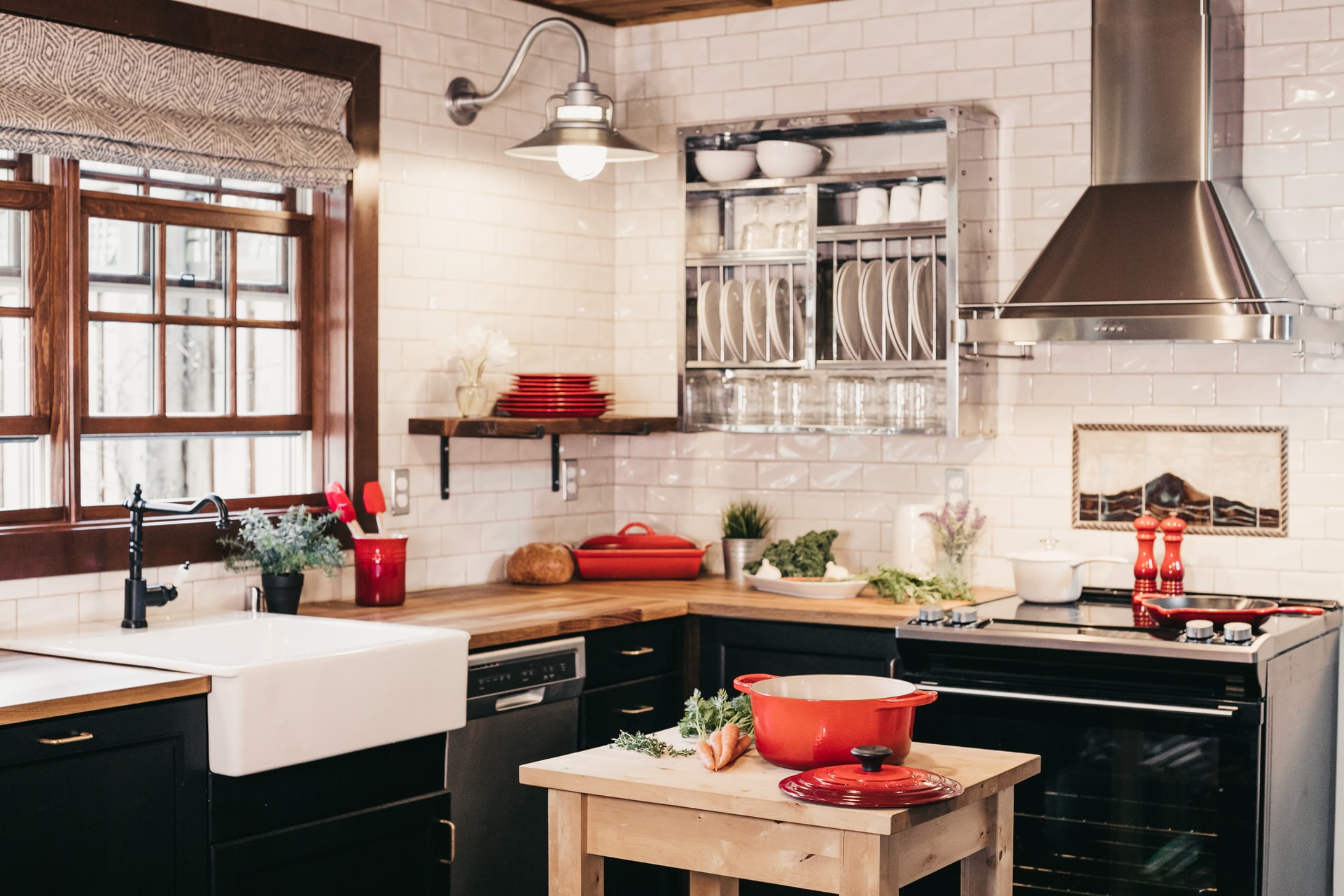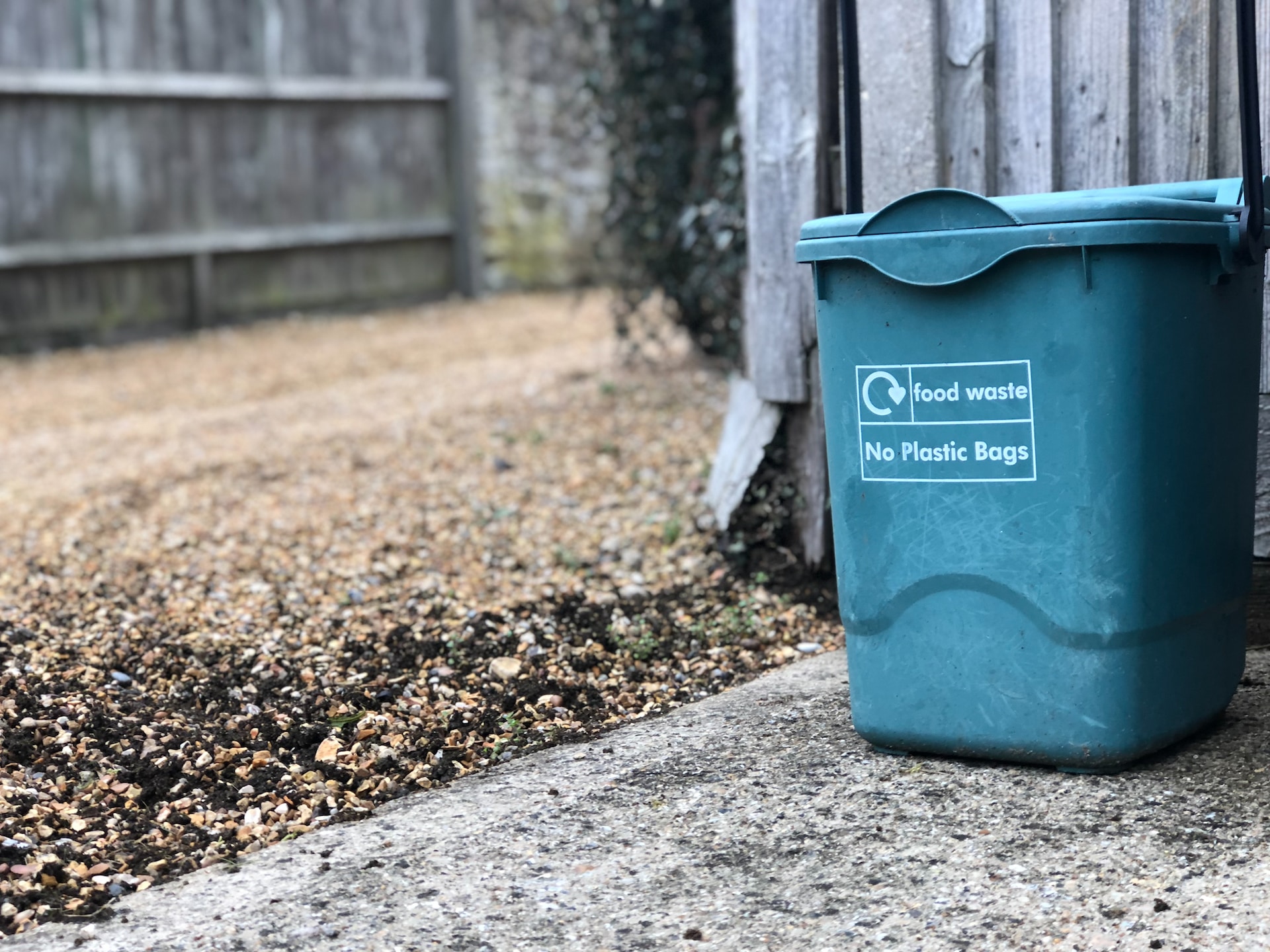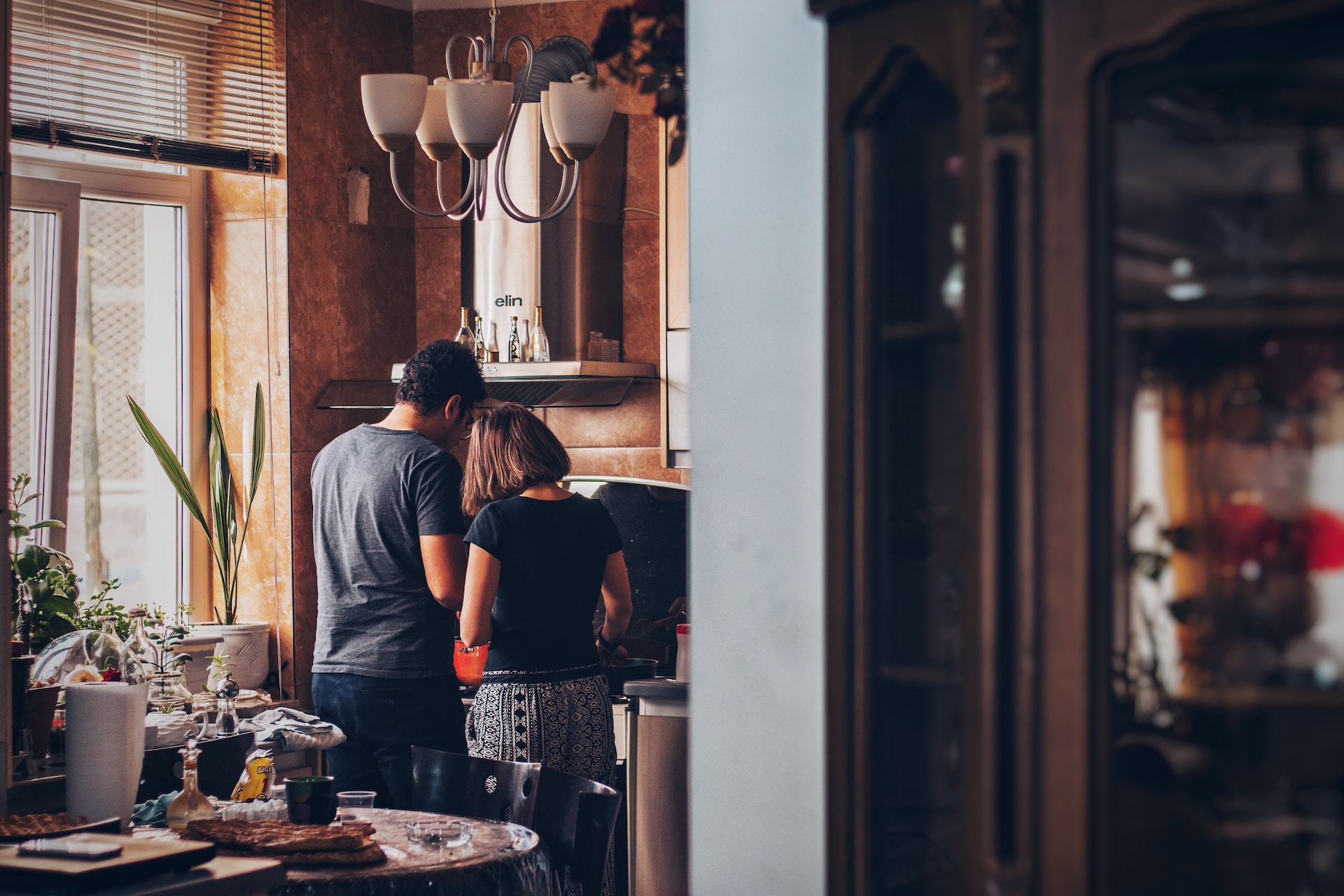Cooking is a skill that many people want to possess, especially when it comes to taking care of oneself or family. To home cooks and pro chefs, the kitchen can become a sanctuary. A space to not only nourish the body but to express emotion. Regardless of what approach the cook takes, there’s always something that can be improved upon, and the tools that make cooking possible are a great point to start. From spices to kitchenware, baking, or frying, we contacted several experienced people to see what are the must-dos and don’ts to make any kitchen feel like a professional one. Here are some great tips:
Is there a kitchen item that makes vegan cooking easier?
There are many kitchen items to make cooking easier in the kitchen, from a food processor, a high-quality chef’s knife, to a great collection of spices for all kinds of delicious cooking. However, the one item I would recommend and cannot live without would be a Vitamix! Or another high-end blender. The Vitamix makes vegan cooking so much easier! It can turn anything into the most perfectly, smooth texture within seconds. There are many recipes I create with my vitamix. Of course, you can make smoothies, but I really love to make super creamy sauces by blending up nuts, spices, and veggies to make alfredo sauce or homemade queso, etc. I also make many soups like tomato bisque, potato soup, and chowders. Additionally, I make homemade ranch and Caesar dressings because of the blender’s amazing ability to pulverize nuts into a silky texture. You can even make nut butters and ice cream bases in them. There isn’t much it can’t do, which is why I cannot live without one and highly recommend it for anybody!
– Brandi, The Vegan 8
Which item(s) need to be present in a southern kitchen?
Nothing captures the warmth, homestyle cooking vibes, and charm of a southern kitchen quite like a well-seasoned cast-iron skillet. It’s the King Daddy kitchen essential, and rightfully so! Cast-iron skillets are built tough like Southern Grandmas and often passed down through generations. Whether it’s frying the crunchiest chicken, baking sky-high buttermilk biscuits, or rustic fresh fruit cobblers, a cast-iron skillet can take your Southern recipes to the next level.
– Monique, Divas Can Cook
As a home cook, how important is it to have different seasonings and spices?
A home cook should always have a wide variety of seasonings and spices on hand. We all know that sometimes recipes that don’t even call for them might need them to elevate the flavor profile. However, not all spices are created equal AND how you treat your spices will ultimately impact the flavor. Here are my top tips for dried herbs and spices in the home kitchen.
- Do NOT store them next to the stove or oven. Any type of heat, even short periods of mild heat, can degrade the potency of spices and herbs.
- Air, heat, sunlight, or humidity are also the enemies of dried spices.
- Store in glasses on containers, plastics can also degrade the potency.
- Spices and herbs in general start to lose flavor as soon as they are harvested. A quick-drying, processing and packing process helps to preserve this. When packaged, they will be sealed from new air and contaminants. Do not open until you are ready to use.
- After opening, ground spices and herbs will start to lose flavor around 5-6 months. Whole spices and herbs around 1 year. I place a small piece of masking tape on each bottle to track the dates. I also only buy the smallest bottle available so I don’t waste any throwing it away when it starts to lose potency.
- In general, 1 teaspoon of dried herbs and spices equals 1 tablespoon of fresh ones.
– Jessica Formicola, Owner at Savory Experiments
What should be the first thing to upgrade in a home kitchen?
When we were looking for a new home, the kitchen was obviously the most important room for me personally. What might be surprising is that the first thing I looked for is the lighting! There’s nothing worse than cooking in a space without enough light to see the food you’re cooking very clearly. When you’re going for that perfect sear or even just a perfectly scrambled egg, it’s important to know the moment it’s done so you can remove it from the heat. Without enough light, it would be very easy to miss those subtle telltale signs. I prefer bright, natural light, but even plenty of artificial light can definitely work.
– Kristy Bernardo, The Wicked Noodle
What are the best tips for glass-front cabinets?
Adding glass panels to your cabinet doors can be a great way to add personal accents to your kitchen. Exposing things like, dishes, glassware, and stylish storage containers give you the freedom to find individual style. So what are the best tips for glass-front cabinets?1. Glass selectionDetermine how you want to showcase items visually.
- Clear glass -full exposure of interior. Feeling of increased space.
- Reeded & Seeded glass – Due to movement in glass will distort objects.
- Frosted glass- Will only silhouette items
2. Adding mullionsMullions will create a personal style to the cabinetry providing a furniture esthetic. This decorative added element will determine your showcase items placement and visibility.
- Grid mullion (Divided lite door) – Work best when aligning with shelves. Gives cabinet display a shadowbox effect
- Decorative mullion (Arches, Circles, etc.) – Will obstruct the view of items placed in the cabinet giving visual interest to the exterior rather than the interior.
3. What are you showcasing?Decide what accessory color scheme works best with surrounding colors in your kitchen. I personally stick to one or two colors when styling my glass cabinets, this gives my kitchen a designer and cohesive feel. 4. Will your display be decorative or functional?
- Decorative, meaning placing items that are not used daily. (Cookbooks, Heirlooms, picture frames, Faux plants, and decorative glass or pottery)
- Non-decorative, meaning items that can be used daily. (Showcasing spices & dry goods in decorative glass jars & baskets.)
Is there a cookware item that Italian recipes would benefit from having in the kitchen?
The Italian kitchen is usually filled with basic items and utensils, but nothing high-tech. In all my working and home kitchens, I always have the following items I can’t do without. These are the first items I stock a kitchen with and then build upon this:
- A stainless steel pasta cooker with strainer to make great pasta dishes.
- A deep-dish pan to make lasagna.
- A saute pan to make risotto and tomato ‘sugo’.
- A wooden spoon.
- A stainless steel skillet for frittatas.
- A cheese grater that will grate fine, coarse, and shave.
- A wooden board for making pasta.
– Maria Liberati, Celebrity Chef/Gourmand World Winner/author of The Basic
Art of Italian Cooking
Besides the basics, is there a kitchen tool that everyone should have?
Other than the basics, the kitchen tool that I think everyone should have is good pair of kitchen shears/scissors. They are so great for cutting and trimming meats (cooked and raw), vegetables, herbs, and, of course, food packages and parchment paper too. Many versions feature a bottle opener, jar opener, and a nutcracker on the handle as well.
– Sherri Hagymas, To Simply Inspire
How to choose good quality glassware?
For most kitchens without a ton of cabinet space, I recommend choosing glasses that can do double duty. A set of 8-12 short and tall glasses is great for daily use — the short ones can be used for juice and cocktails and the tall ones are best for water but they can also stand in for pint glasses. Stemless wine glasses are my go-to for both wine and cocktails alike (and they double as pretty dessert parfait cups for dinner parties!). However, a set of red and white wine glasses never hurt to have for a party. If you have a favorite drink, investing in the glassware it’s traditionally served in will make it feel like the real deal. I’m talking copper mugs for Moscow mule fans or sturdy rocks glasses for the whiskey drinkers.
When you are choosing glassware, the fragility and shape of your glasses matter a lot. I once made the mistake of picking out glasses that were too thin and many of them didn’t last through a year of regular dishwasher cycles. It was so disappointing. Don’t make my mistake — look for glasses that aren’t too delicate for daily use. If it’s a type of glass that will only be used on occasion, like champagne flutes, you can choose a style that’s more fragile, but only if you’re willing to take the time to hand-wash them. Glasses that have a base that’s almost as wide or wider than the opening will be less likely to topple. If you can go in the store and pick them up, holding them in your hands will help you decide if a glass is a good fit for you.
– Susannah Brinkley Henry, Feast + West
Are there any particular items for the kitchen that can make it easier to lead a healthy life?
To lead a healthier life, here are my must-have tools. The first is good quality knives (love my Globals) and keep them sharp. Protect the blades and don’t put them in the dishwasher. Next is a larger cutting board. I use 18”x24” size, made of wood or Richlite. A high-speed blender is important for making healthy smoothies, soups, and dressings and a food processor makes purees like hummus, pesto, plus attachments give you more options. For pots and pans, skip the lightweights and invest in heavier pans that will conduct heat evenly. Good choices are stainless steel. And regular or enamel coated cast iron which with care will last a lifetime. A couple of small to medium non-stick pans are good for omelets and delicate foods like fish filets and searing scallops. Lastly, I have a big stack of rimmed baking sheets on 1/8, ¼, and ½ sheet size. Use them for baking and roasting, organizing, and keeping spaces clean. A packet of half sheet size pre-cut parchment paper is great to line them with, making clean-up easier.
– Sally Cameron Chef, Food Writer Certified Health Coach
AFoodCentricLife.com
What makes a cooking oil good and how do you pick it?
One essential in every household has to be cooking oil. It helps food cook evenly, adds to the flavor, prevents sticking, and provides a pleasing gloss to any meal. Not all cooking oils are equal though with each serving a different purpose. There are many considerations in choosing the right cooking oil for your next dish. These include but are not limited to the following:
- Taste.
- Fat content – Some oils are made up of better fats than others. Olive oil in particular is a monounsaturated fat and can help regulate your cholesterol. Avoid hydrogenated oils and make sure to understand the fat content in your oils.
- Food Type – Different oils are required for different foods. Check your recipe and use the required oil or feel free to experiment.
- Smoking Point – Use different oils when cooking at different temperatures. High heat use canola oil, moderate to low heat use extra virgin olive oil.
- Frying, baking, or sautéing the food – For frying and baking we typically use canola oil, and for sautéing we use olive oil.
- Cost – Choose between refined and cold-pressed oils for your cooking.
More expensive typically means better quality. These are some of the considerations you should be aware of when choosing the right cooking oil for your dish. Make sure to store your oil away from the stove in a dark place, capped and free of moisture.
– Laura Ritterman, Owner – Recipe Fairy
What are the essential kitchen items to start baking?
Kitchen items needed for baking success include a large glass mixing bowl (so that you can ensure that you have thoroughly mixed your ingredients), a set of measuring cups, a set of measuring spoons, a sturdy spatula, and a digital kitchen scale. Baking is culinary science and it’s essential to properly measure and weigh ingredients.
– Lynda Self, Southern Kissed
What is an item that a Nutritionist must have in their kitchen that a home cook can also benefit from?
As a professional chef and nutritionist, I can’t live without my super sharp Global knives and honing steel. Most people don’t know that a dull knife is more dangerous than a sharp one. So investing in a good knife, even just one, and a steel, is critical. It actually makes cooking far more enjoyable.
– Culinary Nutritionist + Author of What the Fork Are You Eating, Stefanie Sacks, MS, CNS, CDN
What are some important tips to extend the life of tableware?
Proper care is essential to extend the life of tableware. Many china patterns have metallic trim and should never be put in the microwave or dishwasher. Sterling silver or silverplate flatware, as well as sharp knives, should never be put in the dishwasher. These items should be washed by hand. Dishwasher-safe dinnerware and stainless steel flatware can be put in the dishwasher or washed by hand. When washing tableware by hand, never use harsh or abrasive cleansers or scrubbers, as they will leave scratches, shortening the useful life of the items. Even rather delicate glassware and stemware can be put in the dishwasher if placed carefully. To prevent build-up from hard water, put a few ounces of distilled white vinegar in a small bowl and set it on the top rack of the dishwasher. This will prevent glassware from becoming permanently etched.
– Jean, Delightful Repast
How important should it be for a home cook to have cookbooks from different regions?
While specializing in one cuisine can often be important, it can also be one-dimensional. Cookbooks from different countries help you have a broader understanding of ingredients and cooking techniques that you can use in your own recipes. It’s almost important to understand that cooking is highly regional. Take Thailand for example – the food from Isaan is completely different from that of the hilly north, and the sweet Central Thai dishes contrast against the super spicy plates from the South. A good cookbook should highlight these regional differences and offer explanations as to how they came to be.
– Luke, A Chef’s Tour
Is there an item or a couple of them that your kitchen just can’t live without?
My kitchen will always need a whisk, measuring cups, and sharp knives. I use my whisk daily, whether it be for cooking up a new recipe for my blog or making my daily turmeric drink. Measuring cups are necessary for me as well, because we all know that just a bit too much or too little of any ingredient can really throw off a recipe. Sharp knives are necessary because they help keep my cuts easier and more uniform, along with being safer in the kitchen – dull knives are more likely to slip off the product and land on your finger or hand. Ouch! I always spend a bit more on these products so they last through the many washes they get each week. A little upgrade goes a long way!
– Carissa, A Mama Blessed
Improving as a home cook it’s not just about upgrading your equipment or having access to better ingredients. You might need to do some remodeling to have the kitchen that’s perfect for your needs.
Much like any other serious skill, experience is what sets the amateurs apart from the true experts in the matter. The only way of making it happen is by spending a lot of time in the kitchen and with these tips, anyone can have a head start on the marvelous journey that is cooking.




